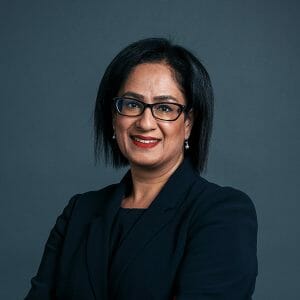Court of Appeal upholds the legality of the UK’s first ‘buffer zone’ outside an abortion clinic
Local Government, Public Law and Judicial Review
Today the Court of Appeal handed down judgment in the case of Dulgheriu & Orthova v LB Ealing [2019] EWCA Civ 1490. The Court has unanimously dismissed a challenge to the lawfulness of a Public Spaces Protection Order (“PSPO”) made by LB Ealing in April 2018, which created a ‘safe zone’ prohibiting protests, prayer vigils and so-called ‘pavement counselling’ outside a Marie Stopes clinic where abortions are performed.
This is the first occasion on which the Court of Appeal has considered the statutory regime which applies to PSPOs. The decision therefore provides important guidance for the many local authorities around England who have made, or are considering making, PSPOs addressing a wide range of anti-social behaviour which has a detrimental effect on the quality of life of those in the locality.
It is believed that the Ealing ‘safe zone’ is the first to apply outside any abortion clinic in the UK. This decision provides important affirmation of the rights of persons accessing reproductive healthcare, including their rights to have a lawful abortion, to access information about that procedure and to the protection of their privacy whilst doing so.
The Second Appellant is employed by a Christian group called the Good Counsel Network (GCN), the First Appellant is associated with GCN. GCN is a pro-life group which held vigils and claimed it offered women support outside the clinic. They brought a challenge to Ealing’s PSPO in the High Court, which was dismissed by Turner J in July 2018. Cornerstone provided an overview of that decision here. At the Court of Appeal, Liberty was also given permission to intervene.
In a judgment of the Court, the Master of the Rolls, King LJ and Nicola Davies LJ upheld all of Turner J’s findings and conclusions.
Firstly, they ruled that local authorities have the power to make PSPOs to protect persons who are only occasional visitors to their district. This will include women visiting the clinic only once or twice, but also tourists or persons visiting shopping centres, hospitals and hospices.
Section 59 of the Anti-social Behaviour, Crime and Policing Act 2014 gives power to a local authority to make a PSPO if satisfied on reasonable grounds that two conditions are met. The first condition is that “activities carried on in a public place within the authority’s area have had a detrimental effect on the quality of life of those in the locality, or it is likely that activities will be carried on in a public place within that area and that they will have such an effect”. The second condition is that the effect, or likely effect, of the activities (a) is, or is likely to be, of a persistent or continuing nature, (b) is, or is likely to be, such as to make the activities unreasonable, and (c) justifies the restrictions imposed by the notice”.
The Court confirmed [47] that it is for local authorities to identify behaviours which cause ‘detrimental effect on quality of life’ in their particular area, and to decide who is ‘in the locality’ for the purpose of protection from such activities. There is no basis upon which to artificially limit the words used in the statute to consideration of ‘regular’ or ‘repeated’ visitors. Instead, local authorities are restricted in making their PSPOs by reference to the second condition imposed: they must show that the effect of the activities on visitors ‘is, or is likely to be, of a persistent and continuing nature’ before a PSPO will be justified.
The court agreed [44] that there was such evidence here, where women visiting the clinic had been left with “significant emotional and psychological damage lasting substantial periods of time by the conduct of [those] protesting outside the Centre immediately before and after the visit to the Centre”, and that “those activities have led some women to cancel their appointment at the Centre, delaying advice and treatment, with consequential potential physical harm to them”.
Secondly, the Court confirmed that the Article 8 rights of service users are engaged when visiting the clinic, having an abortion or accessing information about abortion procedures. It also concluded that they have a reasonable expectation of privacy in so doing [57, 60]. It noted [58]:
“In assessing whether article 8 is engaged by the activities of protesters outside the Centre, it is necessary to bear in mind, as Mr Ranjit Bhose QC, for Ealing, pointed out, that service users visiting the centre are women in the early stages of pregnancy. Some are children. Some are victims of rape. Some are carrying foetuses with abnormalities, even fatal abnormalities. Some may not have told friends or family. Their very attendance at the Centre is a statement about highly personal and intimate matters. They may be in physical pain and suffering acute psychological and emotional issues both when attending and leaving the Centre. There is no alternative way of arriving at and leaving the Centre except across a public space, which they would naturally wish to cross as inconspicuously as possible.”
Thirdly, the Court confirmed the correct standard of review to be exercised whenever a legal challenge is brought against a PSPO which engages fundamental rights such as freedom of speech or assembly. Following R (SB) v Governors of Denbigh High School and Belfast City Council v Miss Behavin’ Ltd the Court confirmed that it must form its own view as to whether an appellant’s ECHR rights have been infringed, rather than merely consider whether the local authority’s decision-making process was flawed. The Court agreed that Turner J had adopted the correct approach in this respect [68].
Fourthly, the Appellants failed in their argument that Turner J had given insufficient weight to their Article 9 rights to freedom of religion and belief. They submitted that their activities outside the clinic were a manifestation of their Christian beliefs in the rights of the unborn. However, the Court agreed that Turner J had approached his decisions on an assumption that the Appellants’ Article 9 rights were engaged and that the PSPO interfered with them. There was nothing defective in his decision [81].
Moreover, however, as Articles 10 and 11 were also engaged in this case, the Court of Appeal held that interference with Article 9 could not have made any difference to the outcome. Article 9 would not have ‘tipped the balance’ against the making of the PSPO if Ealing was otherwise justified in making it [89].
Fifthly, the Court reviewed the proportionality exercise carried out by Turner J which balanced the extent to which the PSPO interfered with the Appellant’s Article 9, 10 and 11 rights on the one hand, versus the extent to which this was necessary to protect the Article 8 rights of clinic service users on the other. It upheld the decision that the PSPO was justified because the protesters’ activities were not merely such as to ‘shock, offend or annoy’: rather, Ealing and Turner J had both concluded that the activities were in fact having a detrimental effect and causing lasting harm to service users [89].
Sixthly, the Court dismissed arguments made by the Appellants and Liberty that the way the PSPO had been drafted was too restrictive of activities within the ‘safe zone’, or that the language used was too vague and insufficiently precise. These arguments were dismissed, for reasons which will be of interest to local authorities formulating their own PSPOs:
- One must look at the PSPO and its terms on the basis of the entirety of the evidence and information available, including the impact of the ‘detrimental behaviour’ on those affected [93]. Here for example, the prohibition of certain activities which would otherwise be considered ‘innocuous’ (such as playing amplified music) was justified because of the particular context where they amounted to a form of protest [100].
- It is plainly helpful if the local authority can show that each restriction within the PSPO is linked to the specific activities which are causing ‘detrimental effect’ [94].
- Much of the language used in Ealing’s PSPO is standard wording used in other contexts, such as non-molestation orders in the family courts or civil anti-social behaviour injunctions. Viewed that way, the language was not impermissibly vague [100].
Ranjit Bhose QC, Kuljit Bhogal and Tara O’Leary represented LB Ealing.
Barristers from Cornerstone have acted in all of the legal challenges concerning PSPOs which have come before the courts, and have advised numerous local authorities on consultation, investigation and decision-making related to PSPOs. The second edition of Kuljit’s book, Cornerstone on Anti-Social Behaviour, which includes a chapter dedicated to PSPOs, was published by Bloomsbury in May 2019.



